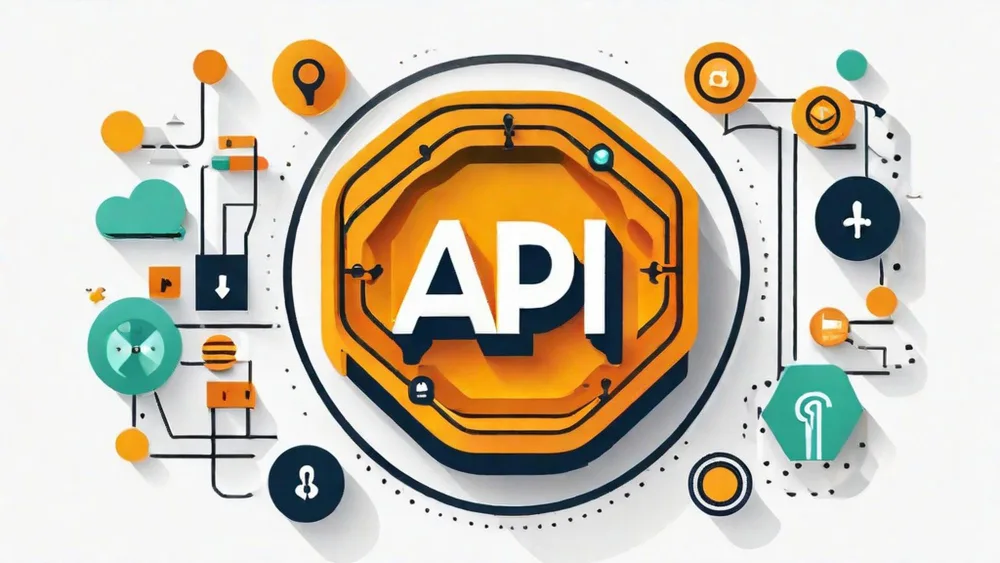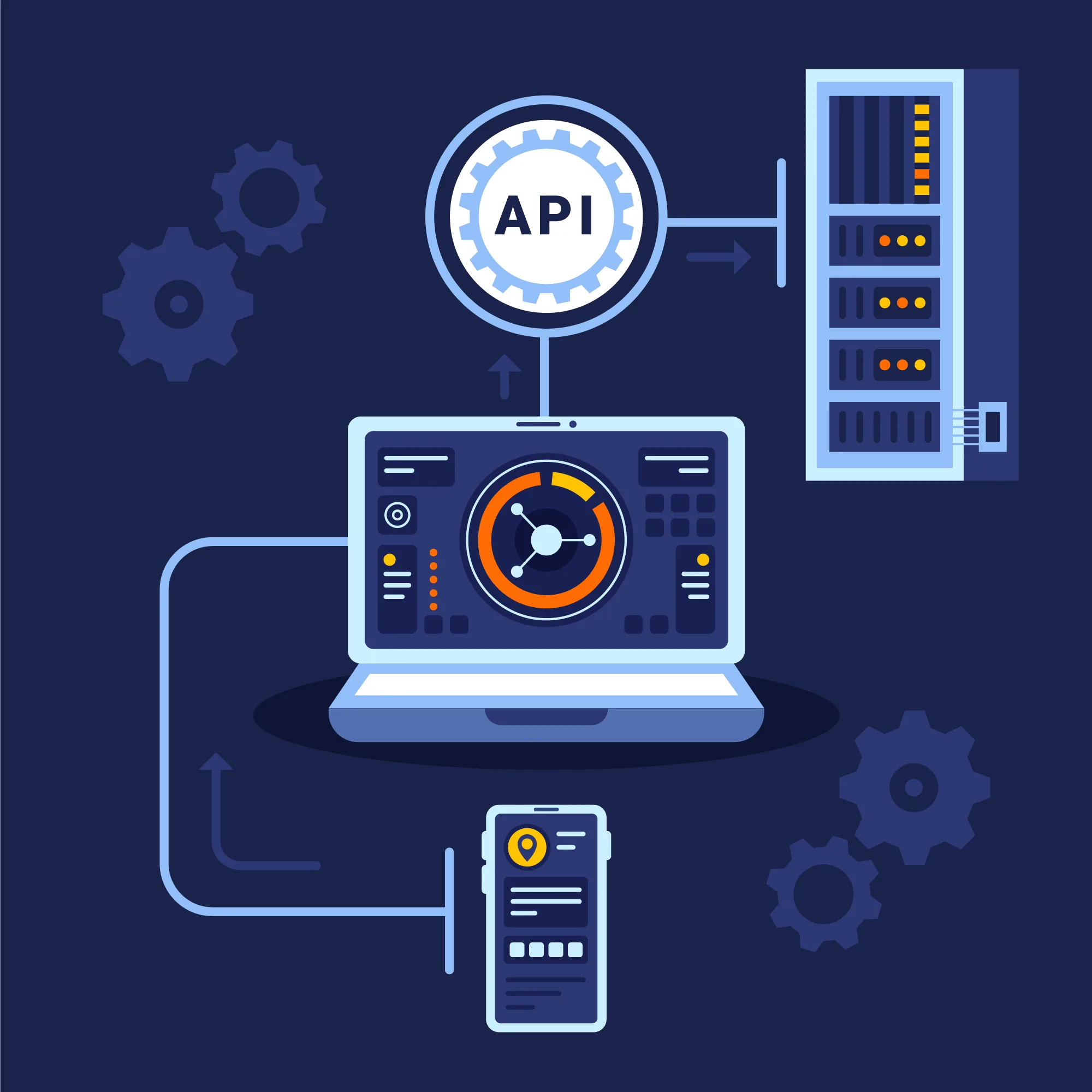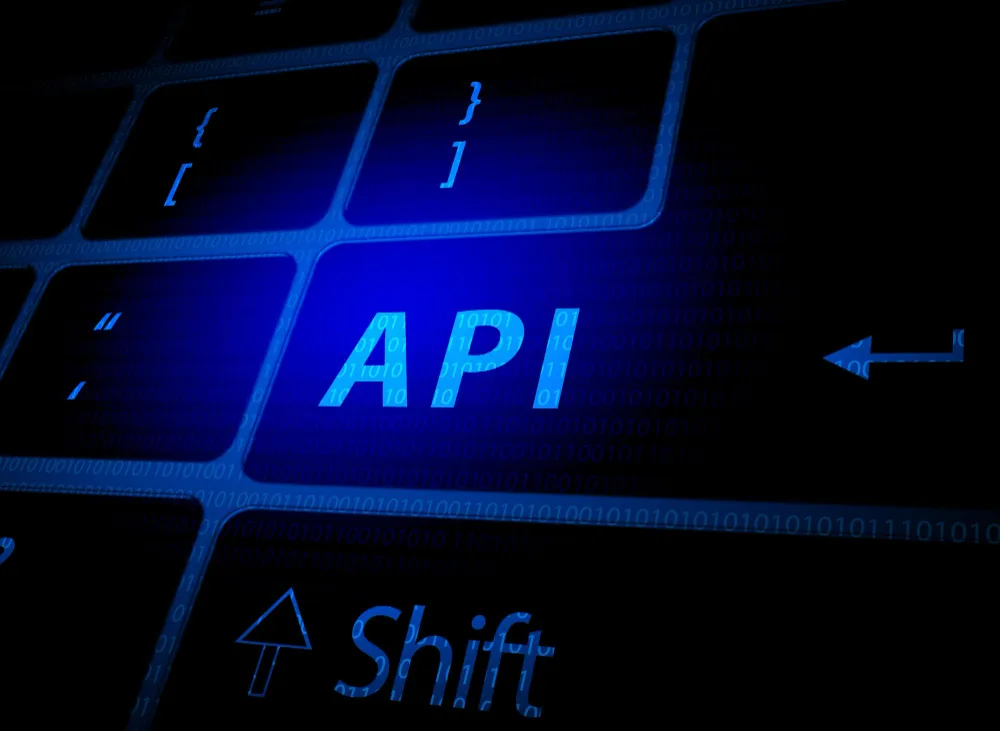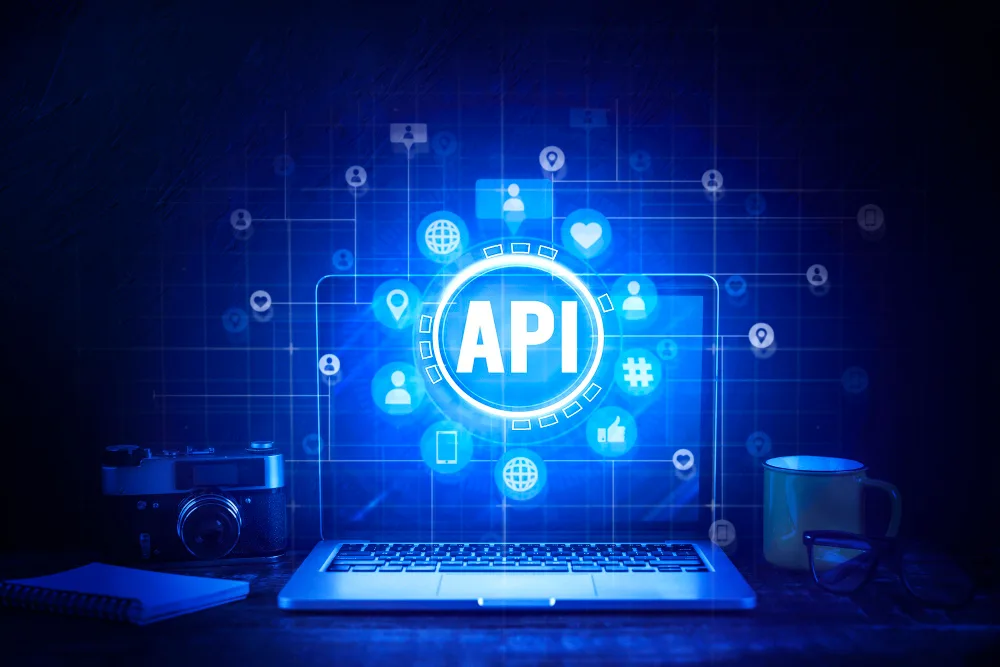Are you a tech-savvy individual with a passion for breaking down barriers and connecting systems through code ? If so, becoming an API tester might be the perfect career path for you . In this ultimate guide, we will cover everything you need to know about what it takes to become an API tester, including the skills, tools and resources you’ll need to succeed in this exciting and dynamic field . So buckle up and get ready to delve into the world of API testing !
Introduction To API Testing
API testing is a crucial aspect of software development and plays a significant role in ensuring the quality and functionality of an application . API, short for Application Programming Interface, acts as a mediator between different software systems, allowing them to communicate with each other . In simpler terms, it is a set of protocols, tools and definitions that enable two applications to exchange information .
With the rise of Service-Oriented Architecture (SOA) and Microservices architecture, APIs have become more prevalent in modern-day software development . As a result, the demand for skilled API testers has also increased significantly .
What is API Testing ?
API testing involves testing the functionality, reliability, performance, security and compatibility of APIs . It ensures that the API can handle various types of requests and responses accurately and efficiently . A comprehensive API test suite covers both positive (valid inputs) and negative (invalid inputs) scenarios to ensure that the application behaves as expected under all conditions .
Why is API Testing Important ?
APIs are used extensively by developers to integrate different systems quickly . Any defect or malfunctioning in an API can impact the entire system’s performance and cause adverse effects on end-users . Therefore, rigorous testing of APIs is necessary to prevent any potential issues from arising post-release .
Role and Responsibilities of an API Tester
As an API tester, you play a crucial role in ensuring the quality and functionality of an application’s API . Your main responsibility is to test the communication between different systems or components through APIs and to identify any bugs, errors or issues that may arise .
Here are some of the key roles and responsibilities of an API tester :
- Writing Test Cases :
The first and most important responsibility for an API tester is to write comprehensive test cases that cover all possible scenarios and edge cases . These test cases will serve as a guide for testing the APIs in different environments .
- Testing Functionality :
The primary focus of your testing is to ensure that the APIs perform their intended functions accurately . You need to verify if all the expected inputs produce desired outputs and if error handling is effective .
- Regression Testing :
With agile methodologies being widely adopted, frequent changes are made to existing codebases during development iterations which may cause previously working functionalities to break inadvertently due to inconsistent code updates . Therefore, regression testing becomes essential for detecting such failures early on before they escalate into bigger problems .
- Documentation Review :
Another vital role of an API tester is to review the documentation for the APIs and ensure they are accurate, up-to-date and comprehensive . Good documentation is crucial for developers using the API as it helps them understand its functionality and usage .
- Collaboration with Developers :
In addition to testing, one of your main responsibilities as an API tester is to collaborate with developers to reproduce and debug any issues found during testing and communicate effectively about the status of defects .
Being an API tester requires a diverse skill set ranging from technical expertise in writing test cases and using testing tools to strong communication skills for effective collaboration . Honing these skills will help you excel in this role and contribute significantly towards building high-quality software products .
Skills Required for API Testing
There are various skills that are essential for anyone looking to become an API tester . In this section, we will discuss the most important skills that you should possess in order to excel in this role .
- Understanding of Programming Languages :
In order to be an effective API tester, it is crucial to have a good understanding of at least one programming language such as Java, Python or C++ . This is because APIs are built using code and having basic knowledge about programming languages will help you understand the underlying architecture of the API and how it interacts with different systems .
- Knowledge of API Protocols :
As mentioned earlier, APIs use protocols like REST and SOAP for communication . Therefore, having a strong understanding of these protocols and knowing their features and limitations is vital for an API tester . You should also be familiar with other relevant concepts such as HTTP methods (GET, POST, PUT, DELETE), status codes (200 OK, 404 Not Found) and request/response formats (JSON/XML) .
- UI Testing Skills :
Though UI testing may not seem directly related to API testing at first glance, it plays a crucial role in ensuring the overall functionality of the application . As an API tester, you must possess basic frontend development skills to understand how APIs interact with user interfaces and perform end-to-end testing .
- Familiarity with Test Automation Tools :
The field of software testing has witnessed tremendous growth in automation over recent years . Hence it becomes necessary for any aspiring API tester to gain hands-on experience with popular test automation tools like Postman or SoapUI which can help you create automated tests quickly with minimum effort .
- Debugging Skills :
APIs being complex applications encounter issues regularly during the development lifecycle which requires proper debugging practices to identify problems early on before they become critical issues affecting customers’ experience negatively . For effective debugging skills require includes proficiency in troubleshooting techniques using logs data from servers and browser developer tools like Google Chrome DevTools .
- Domain knowledge :
This is the part which heavily relies on your experience in the testing domain as it helps you prepare test cases by understanding application flow and evaluating business objectives, errors that occurred previously and what needs to be fixed – like database errors or front-end hazards based on functional requirements . Having sound knowledge of different industries like finance, e-commerce, healthcare, etc ., can help you understand the purpose of APIs better .
Becoming an API tester requires a combination of technical skills such as programming languages and automation tools along with essential soft skills like debugging and domain knowledge . With dedication and continuous learning, anyone can acquire these skills and excel in this challenging yet rewarding role of an API tester .
Steps to Becoming an API Tester
- Understanding APIs and their Functionality :
APIs or Application Programming Interfaces, are an essential part of modern software development . They serve as a communication channel between various applications, allowing them to interact with each other and share data in a standardized format . As an API tester, it is crucial to have a deep understanding of APIs and their functionality .
An API acts as an intermediary between different software systems by defining protocols and standards for how they should communicate with each other . This standardized interaction allows developers to easily integrate new features into their applications without worrying about compatibility issues .
APIs can be broadly classified into two categories : REST and SOAP . REST (Representational State Transfer) is the most widely used type of API due to its simplicity and flexibility . It follows a client-server model, where the client makes requests to the server for information or actions through HTTP protocol using methods like GET, POST, PUT, DELETE, etc .
On the other hand, SOAP (Simple Object Access Protocol) is a more structured type of API that uses XML for data exchange over HTTP protocol . It provides an additional layer of security with built-in error handling mechanisms and supports complex operations such as transactions and remote procedure calls (RPC) .
Apart from these two types, there are also other variations of APIs such as JSON-RPC, GraphQL, gRPC that cater to specific needs in different industries .
Now let’s dive deeper into the functionality aspect of APIs . The primary function of an API is to expose application functionalities for external use without revealing its underlying code or architecture . This means that only certain parts of an application can be accessed through its published endpoints defined in the API documentation .
As an API tester, you will need to thoroughly understand the request-response flow between different endpoints and analyze any discrepancies or errors in this process . You will also need to ensure that all error codes are appropriately handled according to industry standards so that developers can easily troubleshoot issues during integration .
Additionally, APIs often have limitations on the number of requests per time frame to protect the resources of the server . As an API tester, you will need to understand and test these limits to ensure that they are functioning correctly and do not cause any unexpected errors .
A good understanding of APIs and their functionality is crucial for becoming a successful API tester . It involves knowing various types of APIs and their differences, analyzing request-response flows, testing error handling mechanisms and ensuring proper implementation of usage limits . All these skills combined can help you become an expert in API testing and contribute to building reliable software systems .
- Learning Programming Languages and Tools Used in API Testing :
As an API tester, it is essential to have a good understanding of programming languages and tools used for API testing . This knowledge will help you to write efficient and effective tests for APIs . In this section, we will explore the various programming languages and tools that are commonly used in API testing .
- Programming Languages :
- Java :
Java is considered to be the most popular language for API testing . It is an object-oriented language that allows for easy creation and execution of test cases . The popular automation tool, Selenium, also uses Java as its primary language .
- Python :
Python is another widely used programming language in API testing due to its simple syntax and readability . It offers numerous libraries and frameworks such as Pytest, Robot Framework, etc ., that make it easier to develop automated tests for APIs .
- JavaScript :
With the growing popularity of web-based applications, JavaScript has become an essential language for API testing . It allows developers to create interactive interfaces and perform dynamic actions on web pages .
- Ruby :
Ruby is a high-level scripting language known for its simplicity and productivity in writing code quickly . Its simplicity makes it a preferred choice among beginners in the field of API testing .
- Tools :
- Postman :
Postman has gained immense popularity among testers due to its user-friendly interface and extensive features geared towards automating REST APIs’ functional validation process .
- Connector :
Connector is an open-source tool developed by Google specifically designed for performance-testing REST APIs by generating high load over them efficiently without any external dependencies .
- Swagger UI :
Swagger UI helps testers generate documentation from source code annotations that can be then shared with stakeholders easily providing better visibility into your application’s functionality coverage over RFCs (Request For Comments) .
- Katalon Studio :
Katalon Studio offers robust automated verification capabilities that cover various aspects such as security structures, service availability status & compliance checks over API elements .
- SoapUI :
SoapUI is an open-source tool that provides testers a user-friendly graphical interface to create, deploy and control SOAP and REST web services, . . It also allows users to perform automated functional, regression, acceptance or load testing on the APIs .
Using the right programming language and tool can make a significant difference in your API testing experience . However, it is crucial to stay updated with new languages and tools emerging in the market as technology evolves rapidly . With practice and hands-on experience, you can master these languages and tools and become a proficient API tester .
- Familiarizing Yourself with Testing Techniques and Strategies :
As an API Tester, it is important to have a thorough understanding of testing techniques and strategies in order to effectively test APIs . A strong knowledge of these techniques can help you identify bugs, errors and vulnerabilities in the API, ensuring that it functions correctly for end-users . In this section, we will discuss some essential testing techniques and strategies that every API Tester should be familiar with .
- Black Box Testing :
Black box testing is a vital technique used by API Testers to evaluate the functionality of an API without having any knowledge of its internal structure or code . It involves sending various inputs and evaluating the outputs to determine if they meet expected results . This type of testing helps uncover functional issues and ensures that the API meets desired requirements .
- White Box Testing :
Unlike black-box testing, white box testing requires testers to have access to the internal code and logic of an API . This allows them to test specific functionalities within the codebase and identify potential flaws or defects in the system . White box testing is useful for identifying complex bugs that may not be caught through other types of testing .
- Boundary Value Analysis :
This technique focuses on finding errors in boundary conditions – inputs at maximum or minimum limits – where data handling can fail due to incorrect coding . By providing inputs at these boundaries, testers can ensure that APIs handle such scenarios accurately without crashing or failing .
- Error Guessing :
This strategy relies on the tester’s intuition and experience to attempt different scenarios where errors are most likely to occur based on past experiences with similar systems or APIs . While it cannot replace formal test cases, error guessing is a valuable approach for identifying common mistakes or bugs during exploratory testing .
- The "Shift Left" Approach :
The shift left approach refers to performing tests early in the development process rather than waiting until after completion when making changes becomes more difficult and time-consuming . With this approach, API Testers work closely with developers to identify issues early on, promoting collaboration and improving the overall quality of the API .
- Security Testing :
APIs can be vulnerable to security threats such as unauthorized access, data manipulation or information leaks . As an API Tester, it is crucial to conduct thorough security testing by simulating attacks on the system, using tools like fuzzing and penetration testing to identify and mitigate any vulnerabilities .
Familiarizing yourself with these techniques and strategies will not only enhance your skills as an API Tester but also ensure that you are equipped to handle different scenarios during testing . By understanding each approach’s strengths and limitations, you can create a robust test plan that covers all possible scenarios, resulting in a high-quality and reliable API for end-users .
- Developing Critical Thinking and Problem Solving Skills :
Being an API tester requires more than just technical skills and knowledge of software testing tools . To excel in this field, one must possess strong critical thinking and problem-solving abilities . In this section, we will explore the importance of these skills and how you can develop them to become a successful API tester .
The Role of Critical Thinking in API Testing
Critical thinking is the ability to analyze information objectively and make logical decisions based on evidence . As an API tester, you will be responsible for identifying defects, understanding complex code structures and finding solutions to challenging problems . These tasks require you to think critically rather than relying solely on predefined test cases .
One of the key advantages of critical thinking is that it allows you to approach testing with an open mindset . You question assumptions, challenge conventional wisdom and consider alternative scenarios while designing your tests . This helps in uncovering issues that may have been missed otherwise .
Moreover, critical thinking also enables you to identify patterns or similarities between different APIs or systems . This can help in identifying potential risks or vulnerabilities that can impact the overall performance of an application .
Ways to Develop Critical Thinking Skills
- Practice Mind Mapping :
Mind mapping is a powerful tool for organizing thoughts, ideas and data visually . It allows you to see connections between different pieces of information quickly . As an API tester dealing with complex systems, mind mapping can help break down complicated concepts into smaller parts for better understanding .
- Learn from Others :
Networking with fellow testers or attending conferences and workshops are great ways to learn from experienced professionals . Engage in discussions with them regarding their thought processes while solving problems or approaching new challenges .
- Read Widely :
Reading books on critical thinking or following industry blogs can expose you to different perspectives and approaches towards testing . This broadens your knowledge base and enhances your analytical skills .
Problem-Solving Skills for Effective API Testing
Problem-solving skills are essential for an API tester as they help in identifying, analyzing and resolving issues efficiently . In this digital age, technology and platforms are constantly evolving, leading to more complex challenges for testers . Being able to solve problems effectively is crucial to keep up with these changes and ensure the smooth functioning of an application .
Some Tips to Improve Problem-Solving Skills :
- Define the Problem Clearly :
Before jumping into finding a solution, it is important to understand the problem thoroughly . Take time to gather all necessary information and define the problem clearly .
- Utilize Different Techniques :
There are various techniques such as root cause analysis, fishbone diagrams or 5 whys that can help in approaching a problem from different angles . Experiment with these methods to find what works best for you .
- Collaborate with Team Members :
Often, working together with your team members can bring fresh perspectives and ideas on how to approach a problem . This also helps in building communication skills, which are equally important for effective testing .
Critical thinking and problem-solving skills are vital for API testers to excel in their roles . They help in approaching testing with an open mindset, identifying potential risks and resolving issues efficiently . By practicing different techniques, collaborating with team members and continuously learning, you can develop these skills and become a successful API tester .
Tips for Landing Your First Job as an API Tester
Landing your first job as an API tester can be both exciting and overwhelming . As a relatively new field, there may not be many resources available for aspiring API testers on how to secure their first job . However, with the right preparation and approach, you can increase your chances of landing your dream job as an API tester .
- Develop a Strong Technical Background :
The role of an API tester requires a strong technical background in programming languages such as Java, Python or C++, as well as experience in working with APIs and understanding their functionalities . Therefore, it is essential to equip yourself with the necessary technical skills through courses or certifications to stand out from other candidates .
- Enhance Your Knowledge of Web Services and Testing Tools :
Having knowledge of web services such as SOAP and REST is crucial for API testing . Additionally, familiarize yourself with various testing tools like Postman and SoapUI that are commonly used by organizations for API testing .
- Build a Diverse Portfolio :
While theoretical knowledge is essential, having practical experience through projects can significantly enhance your chances of getting hired as an API tester . Consider building small projects or contributing to open-source projects that will showcase your skills to potential employers .
- Network and Attend Industry Events :
Networking is crucial in any industry and it becomes even more important when looking for your first job as an API tester . Attend conferences, workshops or meetups related to APIs and software testing where you can connect with professionals in the field who could potentially help you find job opportunities .
- Practice Interviewing Skills :
It’s natural to feel nervous during interviews but practicing beforehand can make all the difference in showcasing confidence during the actual interview process . Research common interview questions specific to API testing roles and practice answering them effectively .
- Practice Collaborative Work Skills :
As an API tester, you will have close interactions with developers, project managers and other team members regularly; hence it’s essential to develop strong collaborative work skills . Be open to feedback, communicate clearly and effectively and be a team player during any group tasks or exercises .
- Consider Entry-Level Positions :
Don’t be afraid to start with an entry-level position as it can provide valuable experience and opportunities for growth . Many organizations are willing to invest in potential talent and provide on-the-job training for junior API testers .
Landing your first job as an API tester may require patience, persistence and continuous learning . By following these tips and constantly expanding your knowledge and skill set, you can increase your chances of kickstarting a successful career as an API tester .
Conclusion
In conclusion, becoming an API tester can open up a variety of career opportunities in the field of software testing . By following the ultimate guide we have provided, you can gain the necessary skills and knowledge to excel in this role .
It is essential to continuously learn and stay updated on industry standards and developments to remain competitive as an API tester . With determination and dedication, you can build a successful career as an API tester with limitless possibilities for growth .













